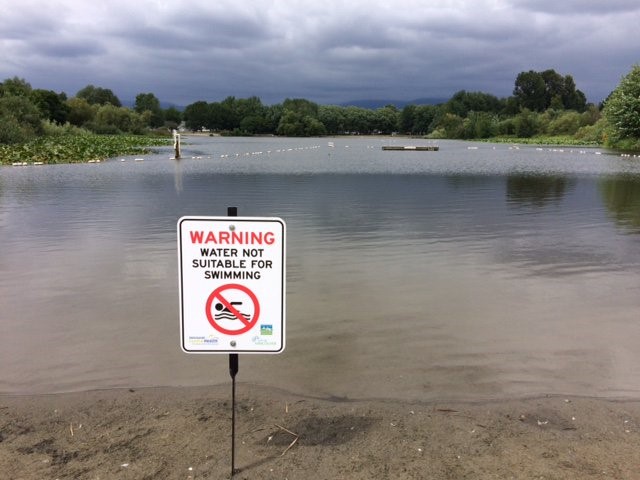The last of Vancouver’s beaches that was closed to swimming over water quality concerns has reopened.

Trout Lake was closed nearly a month ago, due to high levels of E. coli bacteria.
In the weeks afterward, multiple ocean beaches were closed for the same reason, but have subsequently been reopened.
On Friday, Vancouver Coastal Health (VCH) said Trout Lake in John Hendry Park, the final beach on the list of closures, had reopened.
The only beach in Vancouver Coastal Health’s jurisdiction that remains closed is now Snug Cove on Bowen Island.

Get weekly health news
READ MORE: Beach water threats: Could the water make you sick?
E. coli bacteria is associated with fecal contamination from humans and animals, and can cause gastrointestinal illness in humans.
WATCH: Beach threats: Could the water make you sick?

That often leads to symptoms such as stomach cramps, vomiting or diarrhea.
Vancouver Coastal Health says all area beaches are monitored weekly to determine compliance with national guidelines.
It says that the high levels experienced this summer were likely associated with an increase in boat traffic and waterfowl, along with hot weather.
Beaches are closed when the E. coli count exceeds 200 per 100 mL of water.
At one point this summer, VCH took at least one ocean reading that exceeded 15,000 per mL.








Comments
Want to discuss? Please read our Commenting Policy first.